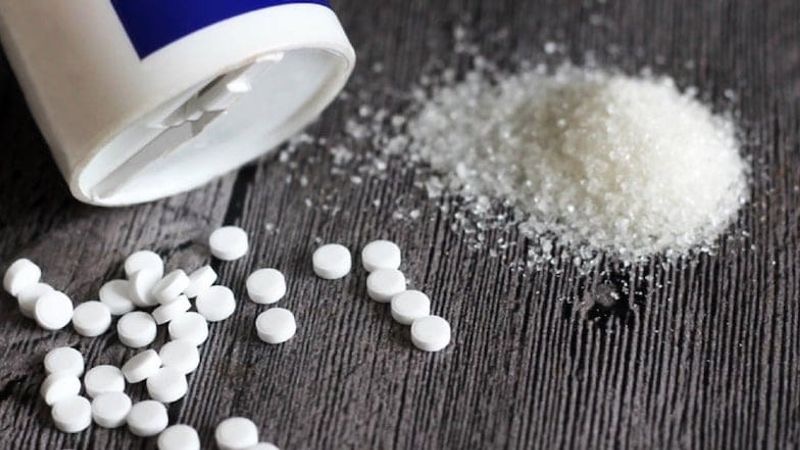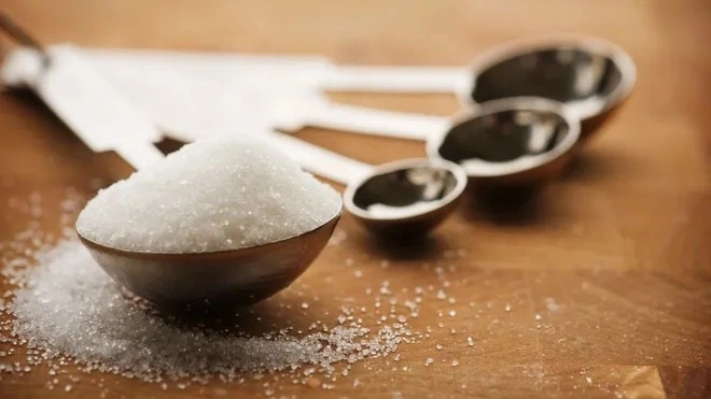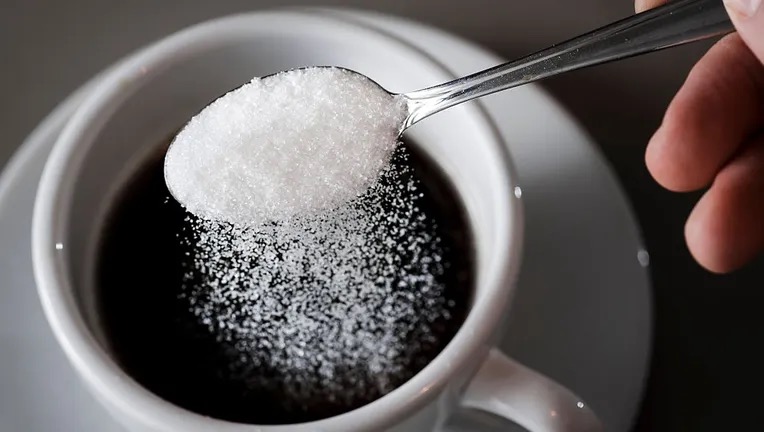Views: 222 Author: Sara Publish Time: 2025-09-14 Origin: Site








Content Menu
● Understanding Sucralose: The Sweetener Behind the Science
● Side Effects of Sucralose: What Science Reveals
>> DNA Damage and Cancer Potential
>> Gut Health Disruption: Leaky Gut and Microbiota Imbalance
>> Metabolic Effects: Diabetes, Insulin Resistance, and Weight Concerns
>> Formation of Toxic Compounds When Heated
>> Immune System and Inflammation
>> Effects on Offspring and Prenatal Exposure
>> Cardiovascular Health Concerns
● Summary of Key Mechanisms and Concerns
● Frequently Asked Questions (FAQs)
>> 1. Is sucralose safe for everyday consumption?
>> 2. Does sucralose cause gut problems?
>> 3. Can sucralose lead to diabetes or weight gain?
>> 4. Is cooking with sucralose safe?
>> 5. What are healthier alternatives to sucralose?
Sucralose is a widely used artificial sweetener found in thousands of sugar-free and "diet" products worldwide. Known for being about 600 times sweeter than sugar but without calories, it is popular among manufacturers and consumers aiming to reduce sugar intake. Marketed primarily as Splenda, sucralose was approved by regulatory bodies in the late 1990s, but new research has raised growing concerns about its safety and potential side effects. This article delves deep into the health implications of sucralose consumption, detailing its biological impact, potential risks, and considerations for use.

Sucralose is a synthetic compound made by chemically modifying sucrose (table sugar), replacing three hydroxyl groups with chlorine atoms. This alteration results in a sweetener that the human body cannot metabolize for energy, thus it contains no calories. Its stability under heat and extended shelf life have made it a favorite for use in beverages, baked goods, chewing gum, dairy products, and even pharmaceuticals like toothpaste and vitamins.
Despite its widespread use, the question remains: is sucralose truly safe for long-term consumption?
One of the most alarming findings from recent research is sucralose's potential to damage DNA and increase cancer risk. Studies from North Carolina State University revealed that gut bacteria can metabolize sucralose into a compound called sucralose-6-acetate. This metabolite has been shown to cause DNA breaks and activate pro-inflammatory, oxidative stress-, and cancer-related genes in human intestinal cells. DNA damage is a known precursor to cancer development, posing serious concerns about chronic intake of sucralose.
Sucralose consumption has been shown to adversely affect gut health by disrupting the delicate balance of gut microbiota. It reduces beneficial bacteria and leads to gut dysbiosis, a state linked to inflammation and digestive disorders. More critically, sucralose and its metabolites have been found to damage the gut lining, causing increased intestinal permeability, or "leaky gut." This condition allows toxins and undigested food particles to escape into the bloodstream, potentially triggering autoimmune diseases, inflammatory bowel disease (IBD), and even worsening chronic liver diseases.
Contrary to its use as a sugar alternative aiming to aid weight management, sucralose may contribute to metabolic issues:
- Impaired Glucose Metabolism: Studies indicate that sucralose ingestion raises blood glucose levels and reduces insulin sensitivity, increasing the risk of developing type 2 diabetes.
- Insulin and Glucagon Alterations: Sucralose affects hormones like insulin and glucagon-like peptide 1 (GLP-1), which regulate glucose metabolism, sometimes causing dysregulation.
- Weight Gain and Fat Accumulation: Animal and human studies have observed increased body weight, fat mass, and changes in appetite regulation after prolonged sucralose consumption. It may stimulate appetite and cravings, potentially counteracting calorie reduction efforts.
Emerging research also links sucralose to hepatic inflammation and liver damage. Animal studies demonstrate that sucralose can cause liver fibrosis, immune cell infiltration, and oxidative stress in hepatic tissue. Additionally, effects on kidney function including increased markers of damage have been observed with prolonged exposure.
Sucralose is stable under moderate temperatures, but at high temperatures used in baking or frying, it breaks down and forms harmful chlorinated compounds such as chloropropanols and chlorinated aromatic hydrocarbons. These substances are toxic, potentially carcinogenic, and can accumulate in the body, raising further safety issues when sucralose is used in cooking.
Research suggests that sucralose suppresses the immune system. It has been shown to reduce T cell proliferation and increase oxidative stress, which can compromise the body's ability to respond to infections and diseases. This immune suppression combined with increases in inflammatory markers may contribute to chronic inflammatory conditions.
There is increasing evidence that maternal consumption of sucralose during pregnancy and lactation adversely affects the offspring's gut microbiota and metabolism. Studies in mice indicate that it increases offspring susceptibility to obesity, non-alcoholic fatty liver disease, and metabolic syndrome in later life, highlighting the need for caution during pregnancy.
Some epidemiological studies have found links between artificial sweeteners, including sucralose, and increased risks for cardiovascular events such as stroke and coronary heart diseases. This could be related to sucralose's effects on glucose metabolism, inflammation, and gut microbiota.

| Effect | Mechanism | Potential Outcome |
|---|---|---|
| DNA Damage | Formation of sucralose-6-acetate damaging DNA | Cancer risk |
| Gut Dysbiosis | Altered microbiota, reduced beneficial bacteria | Inflammation, digestive diseases |
| Leaky Gut | Damage to intestinal cells | Autoimmune and inflammatory diseases |
| Impaired Metabolism | Reduced insulin sensitivity, hormone disruption | Diabetes, weight gain |
| Liver & Kidney Damage | Inflammation and fibrosis in liver; kidney markers damage | Organ dysfunction |
| Toxic Compound Formation | Heat degradation producing chloropropanols | Carcinogenic risk |
| Immune Suppression | Reduced T-cell proliferation | Weakened immune response |
| Prenatal Exposure Effects | Altered microbiota in offspring | Increased metabolic disease susceptibility |
| Cardiovascular Risk | Metabolic and inflammatory impacts | Stroke, coronary heart disease |
The extensive scientific research regarding sucralose reveals a concerning profile of potential health risks, despite its widespread use as a non-caloric sweetener. Sucralose's impacts range from DNA damage, gut microbiota disruption, metabolic disturbances including diabetes and weight gain, to liver inflammation and immune suppression. Additionally, it can generate toxic compounds when exposed to high heat and may adversely affect offspring when consumed during pregnancy.
Given these findings, it is prudent to approach sucralose consumption with caution. Limiting intake, avoiding high-heat cooking with sucralose, and opting for natural sweeteners such as stevia or raw honey may offer safer, healthier alternatives. Further research is needed to fully elucidate long-term effects and safe consumption guidelines, but the emerging evidence urges consumers and manufacturers to reconsider sucralose's role in the modern diet.

While approved by food safety authorities, recent studies highlight possible health risks including DNA damage, gut imbalance, and metabolic issues. It is recommended to consume sucralose sparingly and monitor for any health changes.
Yes. Sucralose can disrupt beneficial gut bacteria and damage the intestinal lining, leading to increased permeability or "leaky gut," which is linked to autoimmune and inflammatory diseases.
Sucralose may impair insulin sensitivity and glucose metabolism, increasing diabetes risk. It may also stimulate appetite and fat accumulation, potentially contributing to weight gain despite being calorie-free.
No. Heating sucralose at high temperatures can degrade it into toxic chlorinated compounds that are potentially carcinogenic. Avoid using sucralose in baking or frying.
Natural sweeteners such as stevia, monk fruit, raw honey, and maple syrup provide sweetness with fewer adverse health effects and additional nutrients.
[1](https://www.frontiersin.org/journals/nutrition/articles/10.3389/fnut.2024.1387646/full)
[2](https://pmc.ncbi.nlm.nih.gov/articles/PMC10971371/)
[3](https://www.kentscientific.com/blog/new-research-with-mice-reveals-the-dangers-of-sweeteners/)
[4](https://pmc.ncbi.nlm.nih.gov/articles/PMC3856475/)
[5](https://www.sciencedirect.com/science/article/pii/S0278691517302818)
[6](https://www.cnn.com/2025/03/29/health/artificial-sweetener-sucralose-hunger-signals-wellness)
[7](https://www.mayoclinic.org/healthy-lifestyle/nutrition-and-healthy-eating/in-depth/artificial-sweeteners/art-20046936)
[8](https://www.healthline.com/nutrition/sucralose-good-or-bad)
[9](https://www.nature.com/articles/s41586-023-05801-6)
[10](https://www.sciencedirect.com/science/article/pii/S1319016420301997)
